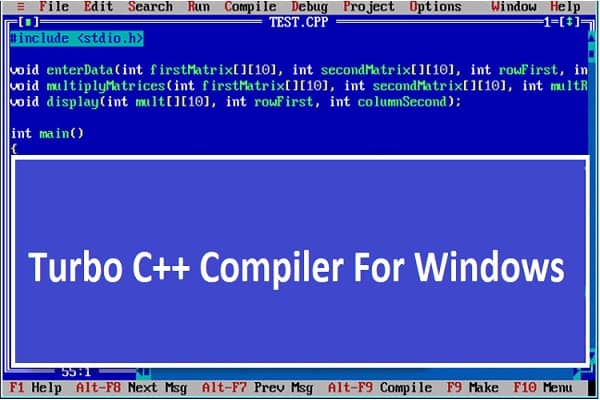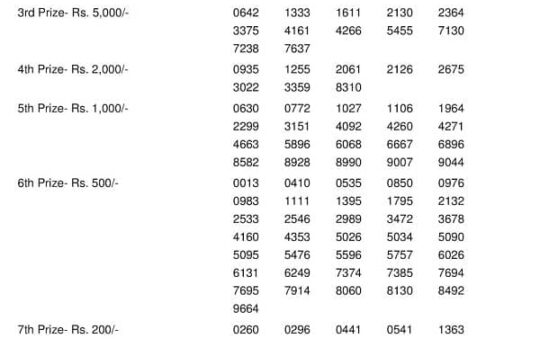This Turbo C++ compiler for windows was created by Borland, the former name of Borland’s compiler and creation environment. It was built to fill the gap between CodeBase and the company’s hobby and business divisions. Later variants of Turbo C++ were designed to be less powerful and for those who wanted to use it in technical development situations, such as people looking for reduced-size versions of full-featured software compilers.
Due to its PC roots, Turbo C++ was released for personal computers for the first time during the DOS period. Version 1.0, which was built on MS-DOS, was launched in May of the same year. There was also an OS/2 variant of the operating system created. As the introduction of version 1.01 took place on February 28, 1991, it was on MS-DOS.
Additionally, the last version of this application was able to produce both COM and EXE programmes and was used with Borland’s Turbo Assembler for the Intel x86 processor package. which was implemented by Sun in 1994 with a back end created by a third party (Metric C, who then became part of Sun Microsystems after it was bought out and merged into their edition, which shipped in that year as Sun C++ in 1994). This compiler sponsored the release of C++ with AT&T offered assistance.
At the time of the 3.0 for Microsoft Windows, Turbo C++ 3.0 was announced. then extended mode, and 8086 safe mode, was first released with MS-DOS support for C++ templates, then support for inline assembler generation and mode for MS-8086 was added for protected mode, and eventually, it was made for 286 real mode and extended memory programmes C++ 3.0, which was on the cutting edge of AT&T’s standards at the time of its introduction.
The Turbo Assembler product was no longer essential as a part of the implementation, and it could serve as a low-functionality version as an alternative.
Soon after the introduction of Windows 3.0, Borland made an enhanced version of their Turbo C++ product that supports application creation for Windows. Following the release of Turbo C++ 3.0, Turbo C++ 1.1 was delivered at the rate of a clip and Turbo 2.5 came on time (as was expected). Having originated at the same time as the C++ compiler, the version change may have been about enhancing or synchronising Turbo C++ and Turbo C, although it’s more likely that the move was about synchronising them, as they did in merging together; too much was new for Turbo C++ (1990) as a merger of both languages had happened, the Turbo C++ transition (which came out only at the time) and C++ was an upgrade.
Turbo C++ version 3.0: This line of development for Borland focused on having a separate C++ compiler into two distinct lines: “Turbo C++” and “Borland C++”. For the hobbyist and beginning compiler audience, the company offered Turbo C++. In the more competitive segment, the company provided Borland C++, which catered to intermediate programmers. This expanded version of C++ includes new techniques, code optimization, and documentation to better meet the needs of industrial requirements. Once Turbo C++ 3.0 had different add-ons, such as Turbo Assembler and Turbo Plus, it could be more expanded with the Turbo Plus 1.0 software.
When the version 4.0 update occurred in November of 1993, it included support for models, which was noteworthy (in addition to other new features) Standard Template libraries like Borland C++ aided the creation of the implementation of the first Standard Template Library (STL), as well as early expressions (ETL) and the first examples of template metaprogramming. The Pascal-developed software was a commercial hit, but they closed down on their Borland C++ suite, devoting all of their efforts to the time and resources of their new Windows product called C++Builder. A different features of the front-end programme (using the System build with the Delphi compiler, but staying with the Delphi compiler back end) Since no more updates were produced after 2006, the active work on Borland C++/Turbo C++ was halted (see below.)
The release of version 4.5 occurred on March 20, 1995.
This latest update is related to multimedia content includes QuickTour, which contains Asteroids-like games (Turbo Meteors (a) Turbo 21 and Turbo Cbage), five new educational games (source codes for Turbo MahJongg and Turbo Blocks) The Expand version contains the Object Windows (OWL) 2.5, App Experts (OWL), and Object Frameworks (OWL 2.5). Version 4.0J is designed to work with PC-9801 and AT (DOS/V) platforms.
Turbo Debuggerate contains Turbo Debugger 4. IDE is based on extended memory. Turbocycle manager encourages the use of OBJ/LIB libraries, as well as use of Turbo Assembler 4.0’s external assembly library. Version 5.0J was introduced on June 23, 1996. based on Borland C++ 5. This edition contains an IDE for Windows 95 and a prior version of Windows NT, and will compile 16-source code. It includes Object database 5.0, Borland database tools, and a Visual database model, among others.
The 2006 version of Turbo C++
the 2006-06 update, there are two versions of Borland Studio 2006 for the C++ language, with two additional years added for the TurboEd packages, including the 2006-08 and the 2006-09 Turbo Professional release which followed up on 2006-09 Turbo Explorer and Turbo Developer the same year. although the Commercial version was $295 per client, the Standard edition was available for free for download and free for any other use.
On October 31, 31st, in the year 2009, all support for the Turbo C++ editions was dropped. In this case, however, the Explorer version has been removed from the market and the Professional one is no longer eligible for purchase from Embarco. Before CodeGear acquisition, the Turbo C++ 2006 site included the app that had been released which was headed by a community member was present and official Turbo C++ 2006 featured community member Code. C++Builder’s later become the community C++ Builder 2010 and funding was discontinued for Turbo C++ 2006. The latest Turbo C++ was updated on February 21st.




